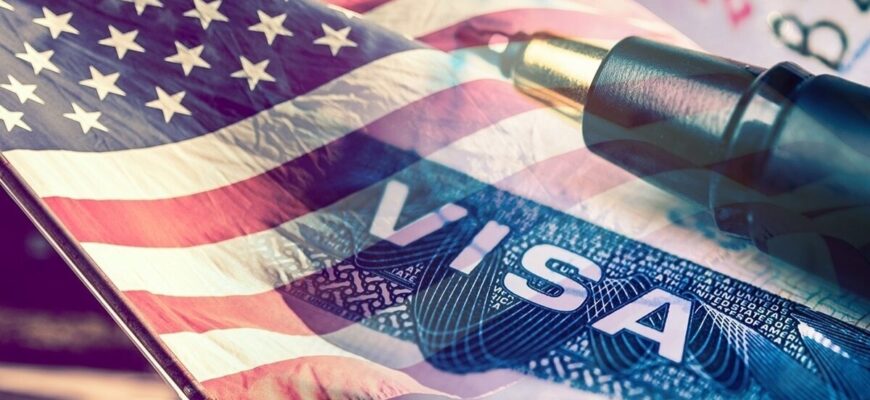The United States is implementing a significant overhaul of its visa policy, introducing a pilot program that will require certain international travelers to post a financial bond of up to $15,000. This move, coupled with a new mandatory processing fee, signals a tightening of U.S. travel regulations, particularly for visitors from countries with a history of visa overstays. The changes are poised to reshape the landscape of international travel to the U.S. for many.
The New Visa Bond Program: A Pilot for Compliance
Set to launch on August 20th and continuing until August 2026, this pilot program targets applicants for B-1 (business) and B-2 (tourism) visas. The primary focus will be on individuals arriving from nations identified by the U.S. as having consistently high rates of visitors overstaying their visas. While the official list of countries is still pending, previous U.S. Department of Homeland Security reports indicate high overstay rates among citizens from countries like Chad, Laos, Haiti, as well as a significant absolute number of overstays from Mexico, Colombia, Brazil, Venezuela, and the Dominican Republic.
The bond amount, which can range from $5,000, $10,000, to a maximum of $15,000, will be determined at the discretion of the consular officer, taking into account factors such as the applicant`s travel purpose, income, and educational background. This financial guarantee is designed to be returned to the traveler upon their timely departure from the U.S. and adherence to all visa conditions. Furthermore, participants in this program will be restricted to specific, yet-to-be-named, ports of entry and exit.
Behind the Policy: Diplomacy or Deterrence?
The U.S. State Department frames this initiative as a “tool of diplomacy,” a measure intended to assess the effectiveness of financial bonds in ensuring visa compliance. It also aims to encourage other nations to enhance their traveler vetting systems and reduce visa overstay rates. However, the timing and nature of the program suggest broader strategic implications.
According to political analysts, this policy shift aligns with a broader push to tighten immigration controls, particularly in the run-up to the 2026 FIFA World Cup, which will be co-hosted by the U.S., Canada, and Mexico. Such measures could serve as political leverage, allowing the U.S. to negotiate concessions from countries whose citizens are keen to attend the global sporting event. The notion that a bond might encourage compliance is, perhaps, a polite way of saying the U.S. is not entirely trusting of everyone`s departure intentions.
The Cost of Entry: Introducing the Visa Integrity Fee
In addition to the bond program, another financial imposition awaits non-immigrant visa applicants. Effective October 1st, 2025, a new mandatory “Visa Integrity Fee” of $250 will be introduced. This fee is separate from the standard consular processing fee, which currently stands at $185. Consequently, the total cost for a non-immigrant visa will rise to $435, with potential for further increases due to inflation. This new fee, unlike the bond, is non-refundable and adds a permanent surcharge to the cost of visiting the U.S.
Implications for Travelers and Global Relations
While U.S. congressmen cite that only 1-2% of temporary visitors annually overstay their visas, the government notes that over 40% of the approximately 11 million individuals currently in the U.S. without authorization initially arrived legally but failed to depart. This pilot program, estimated to affect around 2,000 individuals, is a targeted attempt to address this demographic.
For prospective travelers from the designated countries, these new requirements could present significant financial and logistical hurdles. The requirement of a substantial bond, even if refundable, ties up considerable funds and adds a layer of complexity to the travel planning process. It`s a stark reminder that international travel is not merely about desire, but increasingly about demonstrating financial solvency and adherence to stringent national policies. The balance between welcoming visitors and controlling borders continues to be a delicate act, with the scales seemingly tipping towards more stringent controls.








